How To Store Batteries Long Term: Alkaline & Rechargeable
Have you ever tried using a battery only to find it dead or leaking? It’s not just annoying but potentially harmful as well. Proper battery storage is key to ensuring your batteries are always at peak performance when needed. And if you have used batteries, you want to ensure they’re stored properly to extend their lifespan and avoid any potential hazards.
To store batteries long term properly, keep them in a cool, dry place and avoid extreme temperatures. Keep batteries in their original cases or a secure storage container to safeguard them from any damage and leaking.
Here are several tips to help you store batteries correctly and keep them in optimal conditions.

Why is Proper Battery Storage Important?
Before we dive into the details of how to store batteries, let’s first understand why it’s important. Proper battery storage is important because it keeps your batteries safe and performing optimally. Incorrect storage can lead to leakage, corrosion, and even explosion or fire. It can also decrease the battery’s capacity and lifespan.
Storing batteries in damp or humid environments or subjecting them to extreme temperatures can cause leakage and damage to the battery and the device used. Plus, when batteries aren’t used for a while, they can lose their charge, so you’ll get decreased capacity and performance.
You can extend the lifespan and avoid frequent replacements by storing batteries properly. This helps save money, reduces waste, and ensures you’re always prepared with a reliable power source.
How to Store Batteries Safely
Here are some storage tips that will help you keep your batteries safe and extend their lifespan:
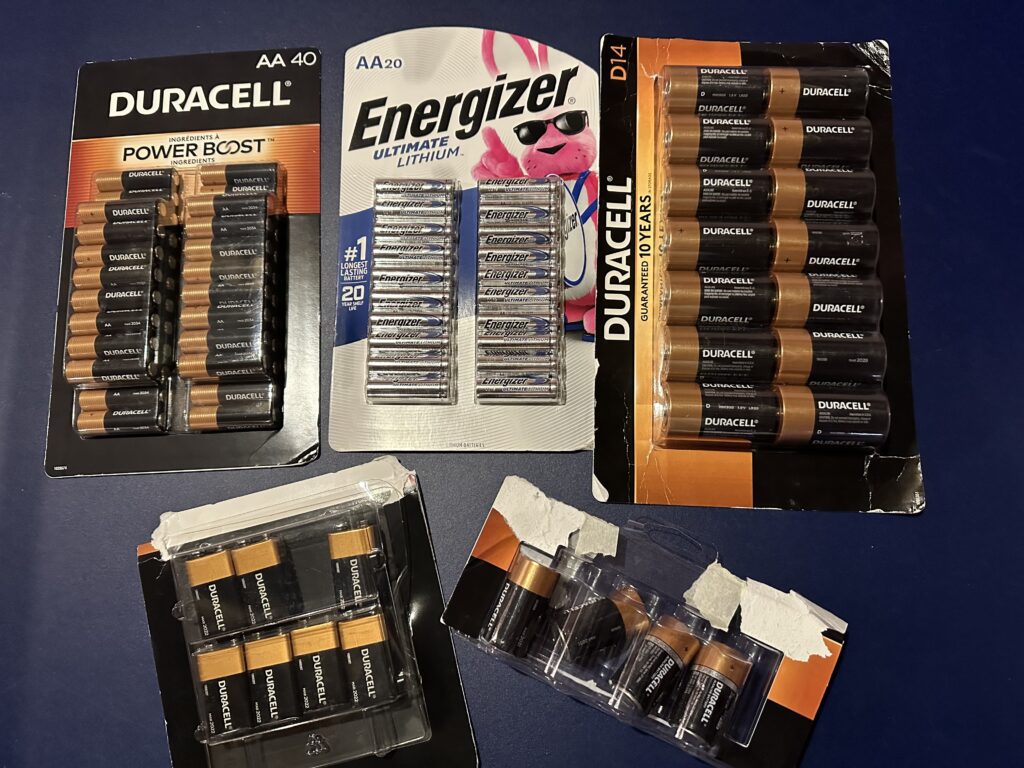
1. Keep Batteries in a Cool, Dry Place
Store batteries at room temperature and avoid storing them in direct sunlight, as this can cause them to overheat and leak. This means avoiding any moist, hot, and humid areas. Also, keep them out of reach of children and pets.
2. Store Batteries in their Original Packaging
To preserve the quality of your batteries, store them in their original packaging until you are ready to use them. The original packaging of batteries is designed to protect them from environmental factors such as moisture and heat. Hence, storing them in their original packaging is best until you’re ready to use them.
3. Keep Batteries Separated
When storing your batteries, keeping them isolated from one another is essential to prevent any contact between them that may lead to a short circuit. If you’re storing multiple batteries, it’s a good idea to label them with the date of purchase or use-by date to keep track of their lifespan.
4. Do Not Store Batteries in Freezers
Batteries last longer at cold temperatures, but you should never store them in a refrigerator or freezer. The moist environment will produce condensation on the batteries, and this will cause rupture of the cases, corrosion, or other damage.
5. Dispose of Old Batteries Properly
Batteries contain toxic chemicals, such as lead, mercury, and cadmium, which can leak and contaminate soil and water sources if not disposed of properly. You should not throw damaged or leaking batteries in the trash or recycling bin. Instead, place them in a plastic bag or container and immediately take them to a hazardous waste facility.
Also, different types of batteries require different disposal methods. For example, zinc-carbon and alkaline batteries can be safely disposed of with regular trash.
Rechargeable batteries must be recycled at designated facilities, such as nickel-cadmium (NiCd) and nickel-metal hydride (NiMH).
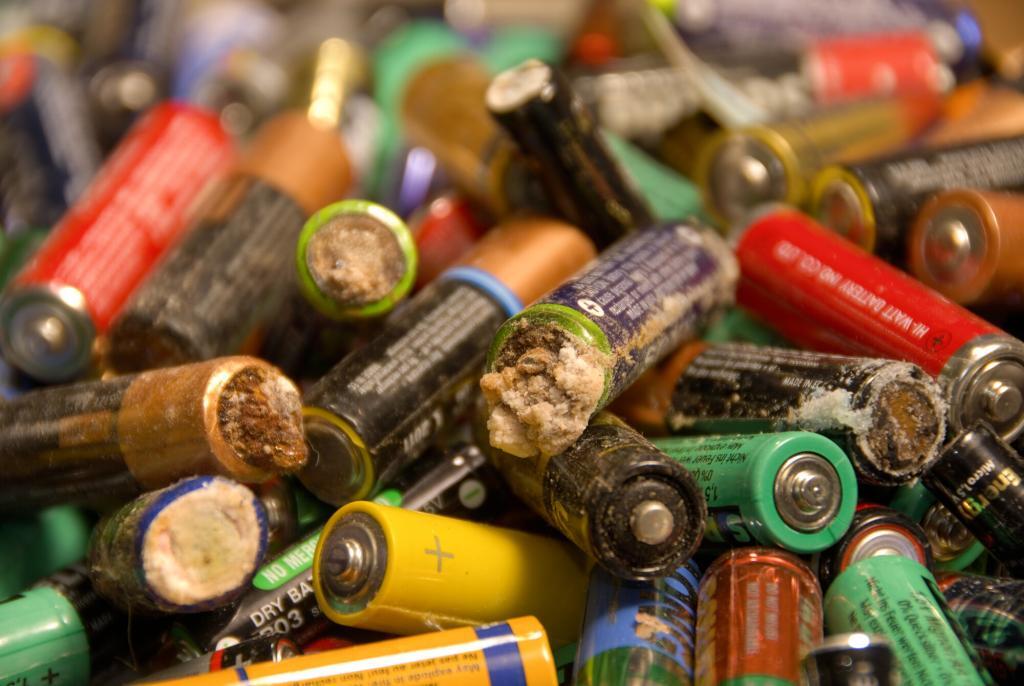
How to Store Different Types of Batteries for Long Term
How to Store AA and AAA Batteries/ Alkaline Batteries
Alkaline batteries are the most commonly used batteries. They are used in various devices ranging from remote controls to toys. Here’s how you can store them:
- Store them in a cool and dry place. It’s best to store them in a dry place away from direct sunlight, such as a drawer or cupboard.
- Keep them in their original packaging until you’re ready to use them.
- Avoid storing them with other batteries, it can lead to leakage or corrosion, which can damage the batteries or the device they’re used in.
How to Store Rechargeable Batteries
Rechargeable batteries are an eco-friendly and cost-effective alternative to disposable batteries. They are used in devices such as cameras, game controllers, and other electronic devices. Here’s how to store them properly:
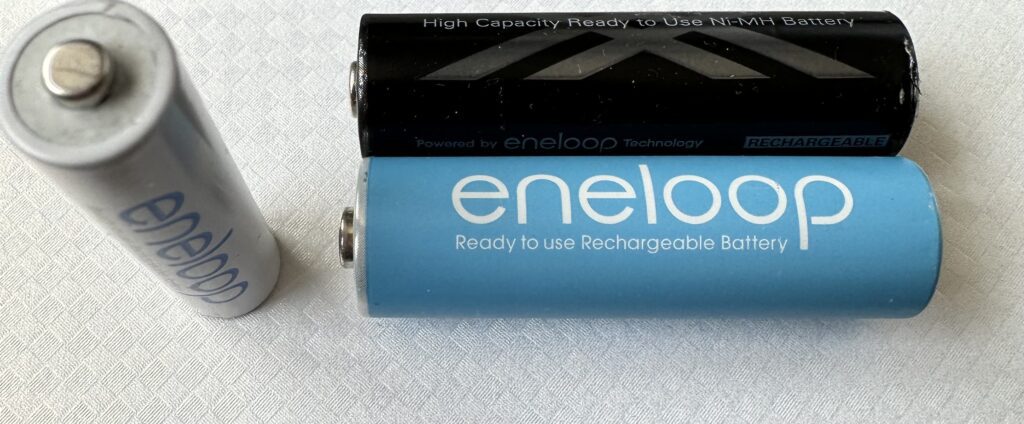
- Charge them fully before storage, as storing them in a discharged state can cause them to lose their charge over time.
- Store them in a cool place, and avoid storing them in direct sunlight or near heat sources.
- Keep them in a charged state. You can charge them every six months to maintain their charge.
How to Store Lithium-ion Batteries
Lithium-ion batteries are commonly used in many of our everyday electronic devices, such as smartphones and laptops. They’re known for their high energy density and long lifespan. Here’s how to store them:
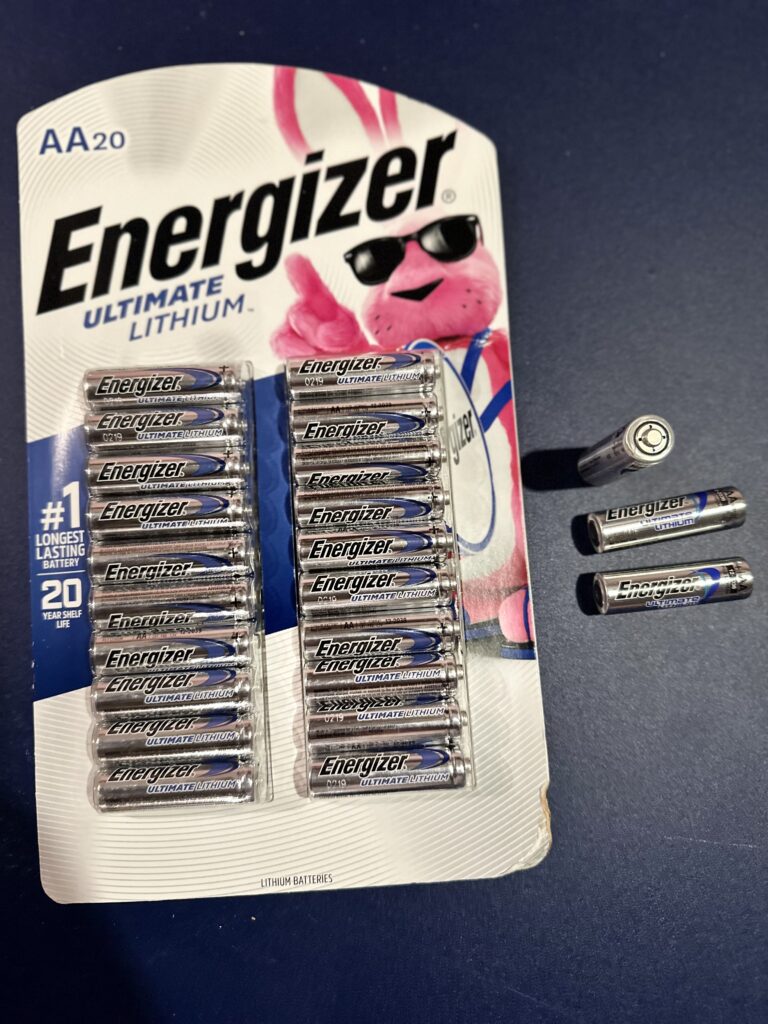
- Store them in a cool and dry place.
- Partially charge them before storage. Lithium-ion batteries should be stored at a 40-60% charge level to prevent them from losing their charge over time.
- Store lithium-ion batteries separately from other batteries to prevent them from short-circuiting, which can be dangerous.
How to Store Loose Batteries
Keep loose batteries in a battery case or plastic container in a cool, dry place. Separate them by type, check them regularly for signs of damage or leakage, and dispose of any damaged batteries or past their expiration date. Also, avoid metal containers, as they can cause a short circuit.
Storage for Batteries
A durable and easy-to-use battery storage container or organizer can save you time and frustration when searching for the right battery.
Look for options that can accommodate the types of batteries you use most often and have separate compartments for different battery sizes, such as the Battery Organizer Storage Case by Range Kleen or the Battery Daddy.
Whatever option you choose, label it clearly so you can easily find the batteries you need when you need them.
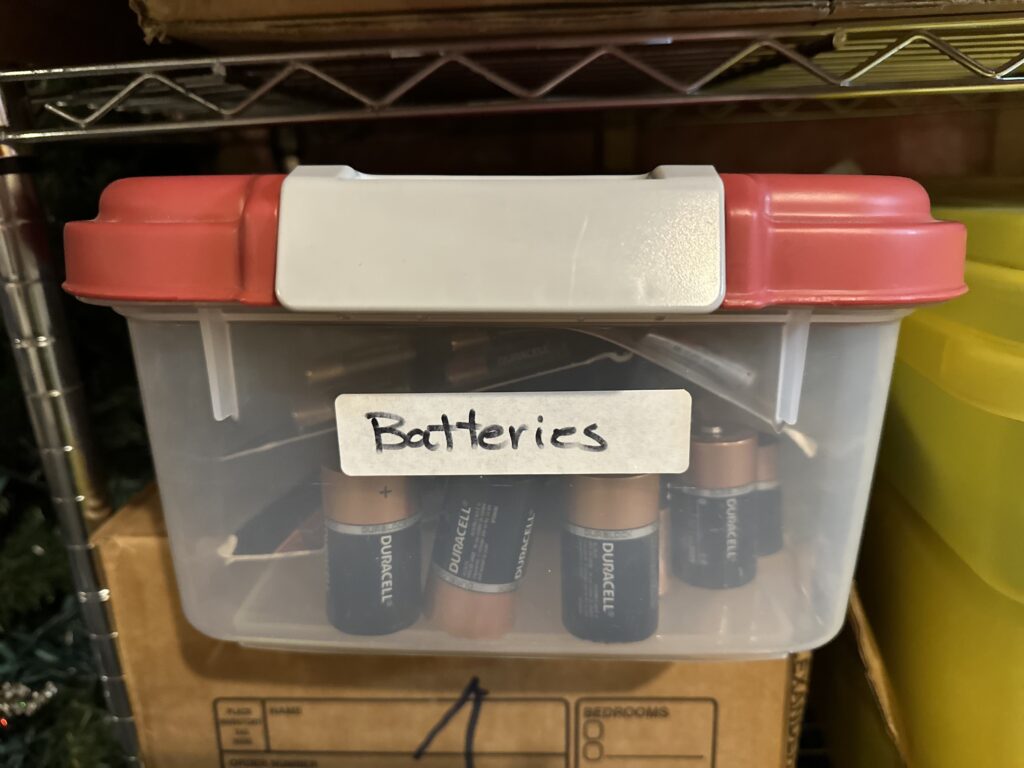
FAQs About Storage for Batteries
Can I store different types of batteries together?
No, storing different types of batteries together can lead to leakage, corrosion, or damage to the batteries or the device they’re used in.
Should batteries be stored in the refrigerator?
No, storing batteries in the refrigerator can cause moisture to condense on the batteries, leading to corrosion or leakage. Therefore, reducing the lifespan of your batteries.
Can batteries be stored in the garage?
Yes, batteries can be stored in the garage if they are kept in a cool, dry place and away from direct sunlight and extreme temperatures. It’s important to check them regularly for signs of damage or leakage and to avoid storing them near flammable materials.
How often should I charge my rechargeable batteries if I’m storing them for an extended period?

You should charge rechargeable batteries every six months if you’re storing them for an extended period.
Can I use batteries that have been stored for a long time?
It’s best to use batteries that have been stored for a maximum of two years. After that, their performance may start to degrade.
Wrap Up
Don’t let unexpected power outages catch you off guard. By learning how to store batteries for long term use, you can be sure to have a reliable power source when you need it most.
Remember, proper storage of batteries is key to ensuring their longevity and performance. It can help you save money and resources and keep your devices running smoothly.
